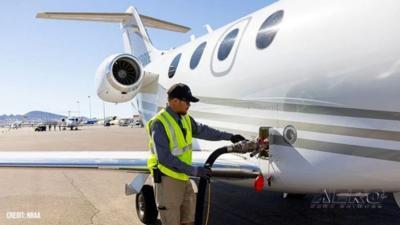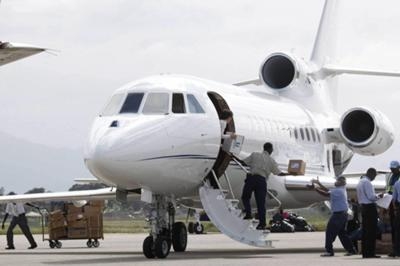Mon, Feb 03, 2025
GAMA and EBAA Study Warns Against Needlessly Restrictive Caps
A recent study revealed that business aviation has a nearly $104 billion impact on the European economy. However, EU proposals to cap short-haul flights and restrict airport slots threaten these benefits. The policies could jeopardize up to €120 billion in foreign investments and 104,000 jobs by 2030.

Commissioned by the General Aviation Manufacturers Association (GAMA) and the European Business Aviation Association (EBAA), the study affirms business aviation’s critical role in European connectivity. Without it, there would be no practical way to link remote areas, efficient medical transportation, or access smaller airports. The sector is also directly tied to upwards of a million jobs throughout Europe.
While one would think that these perks make government agencies want to support business aviation as much as possible, the EU’s new policies seem to be running in the opposite direction. Regulators have introduced proposals to limit short-haul flights and restrict the number of slots available for business aviation flights in some airports.
These changes don’t come without reason; business aviation is generally considered to generate significantly more emissions per passenger than other sectors due to its smaller passenger capacity and shorter flight distances. This fact has created plenty of public backlash and pressure to introduce policy reforms.

This point is where the conflict reaches a stalemate. “Policies that seek to constrain the growth of business aviation create implicit trade-offs between the environmental benefits arising from fewer flights and the foregone benefits associated with business aviation,” the study explained.
The research determined that the EU proposals could risk up to $125 billion in foreign direct investment (FDI) as well as more than 100,000 jobs over the next five years. Instead of these overly restrictive caps, EBAA Secretary-General Holger Krahmer argues, regulators “should focus on policies that support innovation, decarbonization, and competitiveness.”
One step that would satisfy both parties is increasing the utilization of sustainable aviation fuels (SAF). This could assist in decarbonizing business aviation while maintaining the current number of flights and their economic impact.
More News
Aero Linx: Aviators Code Initiative (ACI) Innovative tools advancing aviation safety and offering a vision of excellence for aviators. The ACI materials are for use by aviation pra>[...]
Make Sure You NEVER Miss A New Story From Aero-News Network Do you ever feel like you never see posts from a certain person or page on Facebook or Instagram? Here’s how you c>[...]
From 2016 (YouTube Edition): Who You Gonna Call When You Have a Rocket Engine that Needs a Spacecraft? While at EAA AirVenture 2016, ANN CEO and Editor-In-Chief, Jim Campbell, sat >[...]
"In my opinion, if this isn't an excessive fine, I don't know what is... The odds are good that we're gonna be seeking review in the United States Supreme Court. So we gotta muster>[...]
Expedite Used by ATC when prompt compliance is required to avoid the development of an imminent situation. Expedite climb/descent normally indicates to a pilot that the approximate>[...]
 ANN's Daily Aero-Linx (04.30.25)
ANN's Daily Aero-Linx (04.30.25) ANN FAQ: Turn On Post Notifications
ANN FAQ: Turn On Post Notifications Classic Aero-TV: Agile Aeros Jeff Greason--Disruptive Aerospace Innovations
Classic Aero-TV: Agile Aeros Jeff Greason--Disruptive Aerospace Innovations Aero-News: Quote of the Day (04.30.25)
Aero-News: Quote of the Day (04.30.25) ANN's Daily Aero-Term (04.30.25): Expedite
ANN's Daily Aero-Term (04.30.25): Expedite




